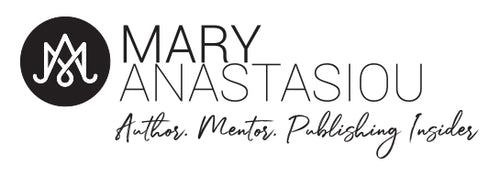Vulnerability, Imposter Syndrome, and the Highs and Lows of Publishing

Let’s chat about something we all experience but rarely share with others: the emotional rollercoaster of creating children's books. We celebrate the highs — new contracts, cover reveals, book launches — but we don’t always share the lows: the waiting, the rejection, the creative burnout, and the self-doubt.
The Unseen Struggles of Publishing
The reality is, that publishing isn’t just about creativity; it’s a test of patience, resilience, and persistence. We pour our time, energy, and money into writing courses, manuscript assessments, and conferences, all in the hopes of getting that elusive ‘yes.’ And even when success comes, the fear of losing momentum or not being ‘good enough’ can creep in.
Professional feedback can be both a gift and a curse. One moment, it validates your talent; the next, it leaves you questioning whether you’re brilliant or completely delusional. The long gaps between submissions and responses don’t help either. It’s easy to let self-doubt take over, especially when social media is flooded with others’ achievements while your inbox remains painfully silent.
Imposter Syndrome: The Silent Saboteur
Imposter syndrome doesn’t discriminate—it affects debut and seasoned authors alike. That little voice whispering, “Your writing isn’t good enough. No one will want this.” can be paralysing. Some writers find themselves stuck, unable to write anything, whilst others compare their journey to those who seem to be ‘winning’ in the industry, forgetting that social media only shows a fraction of the story.
The Myth of Traditional Publishing as the Only Path to Success
There’s an unspoken stigma that you’re only truly successful if a traditional publisher chooses you. But the truth is, success isn’t about waiting for approval—it’s about owning your creative journey. Some authors find empowerment in self-publishing or independent avenues, focusing on their audience rather than the industry’s gatekeepers. When you shift your mindset from seeking validation to serving your readers, everything changes. You take back control.
Practical Strategies to Overcome Self-Doubt and Burnout
-
Limit Comparisons – Social media is a highlight reel. Focus on your own journey, not someone else’s curated version of success.
-
Celebrate Small Wins – Keep a journal of every achievement, from positive feedback to finishing a draft. These moments add up and serve as a reminder of how far you’ve come.
-
Reframe Rejection – A ‘no’ doesn’t mean your work isn’t valuable. It just means it wasn’t the right fit for that editor, at that moment. Keep going.
-
Seek Constructive Feedback (but Trust Yourself, Too) – Not all feedback is equal. Learn to differentiate between useful critique and personal opinion. If multiple professionals say the same thing, it might be worth revisiting.
-
Engage in Other Creative Outlets – Sometimes stepping away from writing and engaging in other artistic pursuits can reignite inspiration.
-
Redefine Success on Your Terms – Whether you choose traditional publishing, self-publishing, or something in between, remember that you are the one who gets to decide what success looks like for you.
-
Find Your People – Writing can feel isolating, but you don’t have to go through it alone. Find critique groups, writer friends, or communities that understand the journey.
Keep Going—Your Story Matters
The highs and lows of publishing are inevitable, but they don’t define your worth as a writer. The world needs your stories. Whether you’re waiting for a response, battling imposter syndrome, or questioning your path, know this: your voice matters, and the right readers are out there waiting for your words. Keep writing, keep believing, and most importantly, keep choosing yourself.
Need a little more inspiration to stay motivated? Hit me up! I'm always available for a cuppa and a KidLit chat :)










